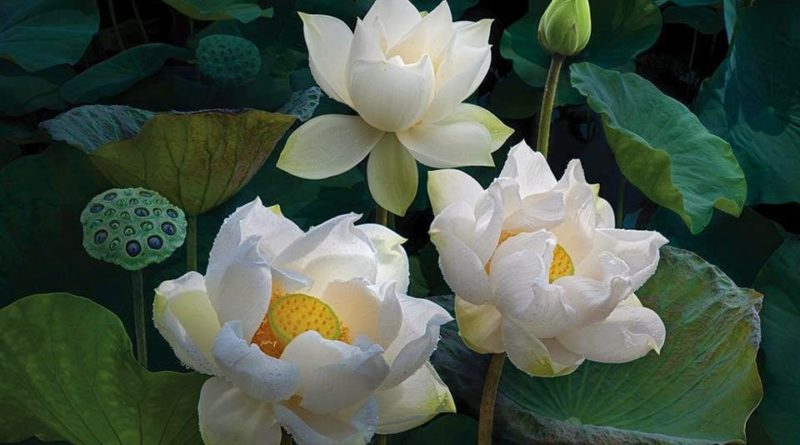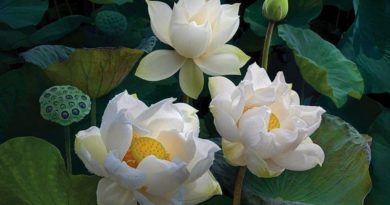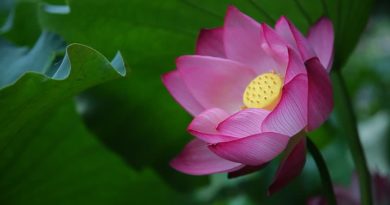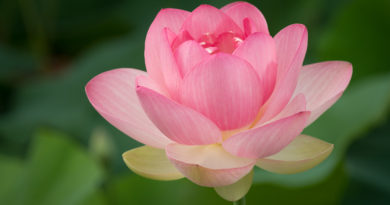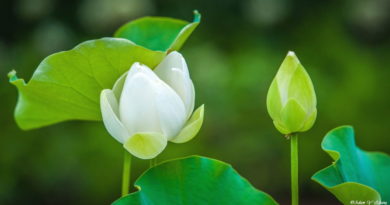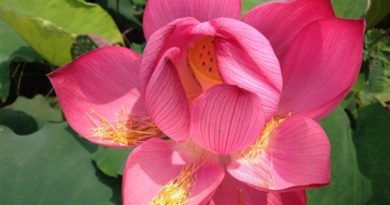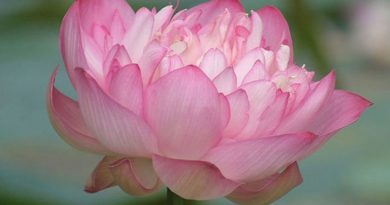DHAMMA PADETHA – 28. FOUR GOOD OPPORTUNITIES TO REALIZE DHAMMA
DHAMMA PADETHA – FOUR GOOD OPPORTUNITIES TO REALIZE DHAMMA
As the sasana era has passed (2500) years, some people think that it is not the time for people to become noble persons (ariya puggala) such as stream-winners (sotapanna) etc.. and attain noble dhamma. Yet some believe that although the sasana era has passed (2500) years, there can be ariya puggala such as (sotapanna) etc.. who will attain noble dhamma. Of these two schools of thoughts which is correct have been clarified in the works of atthakatha commentators.
These commentators who knew the wishes of the Lord Buddha have pointed out four good opportunities to realize dhamma.
(1) Buddhuppadakhano — being at the time of Lord Buddha’s Enlightenment, there is the opportunity of encountering the sasana.
(2) Majjhimadeseuppattikhano — being born as a human being in the central region (majjhimadesa) where the sasana flourishes.
(3) Sammaditthiyapatiladdhakhano- the opportunity of having the right view.
(4) Channamayatananamavekallakhano — the opportunity of having the fully-endowed unhandicapped sensitive parts, such as that of eyes, ears, nose, tongue, body and mind. These are the four opportunities to realize noble dhamma which have been spoken of. (Dhammapadattha 2/304)
(1) When there is no enlightenment of Buddha and there is no sasana, the teachings of Buddha, if people wish to practise dhamma, they cannot do so because there is entirely no satipatthana vipassana meditation practice to attain noble dhamma. Thus, they cannot practise and realize noble dhamma.
Those who are born as human beings, when there is the enlightenment of the Buddha and his teachings (sasana), are able to listen to the dhamma discourses and the opportunity to practise satipatthana vipassana meditation, will become ariya puggala such as sotapanna, etc.. and realize noble dhamma according to their parami. That is why, to be at the time of the enlightenment of the Buddha and this sasana is a good opportunity to realize noble dhamma.
Motto: To meet with the enlightenment of Buddha and this sasana is a good opportunity.
(2) Though there is enlightenment of a Buddha and his sasana, those who are born at a place where the sasana does not flourish, cannot listen to the dhamma and are unable to practise satipatthana vipassana meditation. Hence they cannot attain noble dhamma.
Those who are born where the sasana flourishes are able to do merits in connection with the sasana. They can listen to and practise satipatthana vipassana meditation to attain noble dhamma. Therefore, they can become ariya puggala such as sotapanna, etc.. and realize noble dhamma. Hence to be born as a human being at a place where the sasana flourishes is a good opportunity to achieve noble dhamma.
During the life time of Lord Buddha, India, known as Majjhima desa was a place where the sasana flourished.
Nowadays a country like our Myanmar will be considered as a place where the sasana flourishes.
Motto: To reside at a place where sasana flourishes, is a good opportunity.
(3) Those who do not believe that doing: meritorious deeds such as dana can make one prosperous and can give many kinds of benefit in every existence; unwholesome deeds such as killing, stealing etc.. will lead one to apaya and will have to suffer—think that there is only one existence, there is no future life. These people, with wrong view (micchaditthi) will not give dana or do any meritorious deeds. Neither will they practise satipatthana vipassana meditation by which they can attain noble dhamma. Thus they will never attain noble dhamma.
Those who believe that doing meritorious deeds such as dana will make them prosperous and give many kinds of benefit in every existence till they reach nibbana, and that taking life, stealing and other misdeeds will lead to apaya, and will have to suffer all kinds of miseries will do meritorious deeds because they have the right belief. To attain noble dhamma, they will practise satipatthana vipassana meditation, Thus, according to their parami they will become ariya puggala such as sotapanna etc.. and realize noble dhamma. Therefore, to have the right belief is a good opportunity to perceive noble dhamma.
Motto: Having the right belief is a good opportunity.
(4) Those, who are blind, cannot worship the Buddha image and cannot be mindful by noting mentally ‘seeing, seeing’. Those, who are deaf, cannot listen to dhamma talks and be mindful by noting ‘hearing, hearing’. Those whose sensitivity of smell, taste, and touch are handicapped, and who are mentally deranged cannot practise meditation. Therefore, they cannot achieve noble dhamma.
Those whose six sensitivities such as sensitivity of sight, hearing, smell, taste, and touch are all sound and who is mentally not impaired, can worship Buddha image, listen to dhamma discourse, practise satipatthana vipassana meditation and according to their parami will become ariya such as sotapanna, etc. and perceive noble dhamma.
That is why, to have all the six senses without being impaired is a good opportunity to achieve noble dhamma.
Motto: Having good six sense faculties is really a good opportunity.
If those who have those four good opportunities practise satipatthana vipassana meditation correctly will surely attain noble dhamma.
Those who practise satipatthana vipassana meditation with the correct method, though they may not be able to practise full time but practise only part time will know the nature of dhamma. Those who know the nature of dhamma will become interested in practising dhamma They will have more confidence than before, that they can achieve dhamma in accordance with their parami.
In as much as their confidence that they can perceive dhamma in this very life they will have more determination, effort and diligence which again will lead to mindfulness. In as much as mindfulness is strengthened, concentration (samadhi) will be strengthened. If samadhi is deepened vipassana insight will be gained. When insight becomes stronger and (requirements) are fulfilled, they will attain magga phala nana and realize nibbana, the noblest dhamma.

